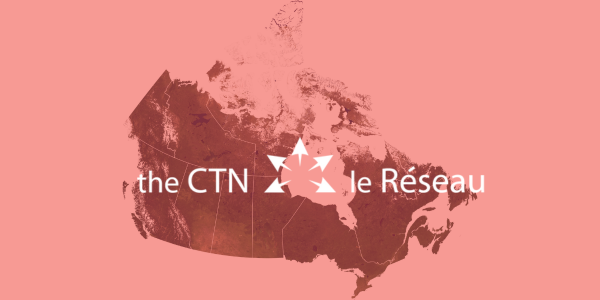Over the past few weeks, the world has woken up to the danger of COVID-19. The global response to ‘flatten the curve’ is unprecedented, and will likely be remembered as the most wide-reaching public health initiative in history.
As we settle into a new normal of physical distancing, self-isolation and working from home, it’s easy to feel like we are in uncharted territory. But people living with HIV may have seen this all before. “This is like the 80’s all over again,” says Darren Lauscher (pictured), a longtime HIV advocate and member of the CTN’s Community Advisory Committee (CAC). “It’s like we’re learning how to do this all over again.”
The world has surely changed since the emergence of HIV, but in this uncertain time we must learn from those who have lived through pandemics to ensure that we don’t repeat the same mistakes. The CTN spoke to a number of HIV advocates in an effort to centre their voices in the COVID-19 response.
History repeating
People living with HIV know intimately what a global pandemic looks like. Those who remember the early days of the AIDS pandemic have observed some of the same trends today. Lauscher remembers the feeling of paranoia that permeated the gay community when HIV first emerged. He sees all-too familiar trends in the worry, confusion and stigma that we are witnessing today. “People living with HIV understand the gravity of the situation,” he says. “We are still living through the HIV pandemic, we know what it’s like.”
John McCullagh, a board member for CATIE, also remembers the early impact of stigma on the gay community: “Stigma can be just as deadly as a virus,” he says. In the face of fear and uncertainty, people often look for a scapegoat to direct their fear. In the 1980’s that was the gay community, but today he worries about possible ethnic backlash.
McCullagh also worries about the misuse of punitive measures for containing COVID-19. These measures can be easily abused, which can lead to gross human rights abuses. For example, throughout the 1980’s and 90’s, not disclosing one’s HIV status to a sexual partner was a cause for arrest even if other protective measures were in place. Many people were incarcerated as a result, not to mention the feelings of dehumanization that accompanied these measures. “Health is a right,” McCullagh emphasizes, “and as a right it must be protected. This includes protecting the most vulnerable members of our society.”
Nevertheless, Lauscher also remembers the incredible mobilization that followed the emergence of HIV. In the face of stigma and discrimination, the gay community banded together to support one another and, with the help of vocal allies and medical professionals, demand access to lifesaving medication. Lauscher emphasizes the importance of community-solidarity: “COVID-19 is going to be addressed on the ground with grassroots community responses,” a trend we’ve already been witnessing.
A seat at the table: research in the age of COVID-19
The rapid spread of COVID-19 has demanded immediate and novel responses to the crisis, including refocused research efforts. The pace of this research has meant that investigators have to rely on existing materials. For example, researchers out of St. Paul’s Hospital in Vancouver have converted two Roche diagnostic machines usually used to test for HIV and hepatitis C to instead test for COVID-19, with a capacity for over 2,000 tests per day.
Dr. Joel Singer, Program Head – Methodology and Statistics at the CTN, became involved in clinical research during the early days of the HIV epidemic. “One of the things that I quickly learned is that the usual ways of conducting research had to change in an emergent situation,” he explains. “When I first got involved in HIV research, it was a disease spreading rapidly across the globe with only one known treatment, AZT at the time, and we very quickly learned that AZT as monotherapy would have limited efficacy.” The novel approaches adopted by Dr. Singer and other researchers across the globe led to the development of antiretroviral therapy, or ART, which now allows those living with HIV to lead long and healthy lives. Some of these medications are now being tested for the treatment of COVID-19.
HIV had a lasting impact on the way health research is conducted, particularly the role of community consultation. “I believe that the involvement of patients in all aspects of the research enterprise became popularized because of the HIV epidemic,” says Dr. Singer. “People with HIV were demanding participation, and most scientists eventually became receptive when they understood that this participation was advantageous in a broad variety of ways.” McCullagh agrees that one of the legacies of the AIDS movement was to build relationships between medical professionals and community members. He emphasizes how community involvement produces the best results and takes into consideration the needs of the most vulnerable patients.
Lauscher has extensive experience advocating for the involvement of people living with HIV in clinical research through his involvement with the CAC. “It is so important to have a seat at the table,” he says. “We have already built strong connections that can easily be adapted for COVID-19 research.” He believes that the HIV epidemic taught researchers to think outside the box and learn the value of translating their research for the patients they hope to serve. Above all, the greatest lesson Lauscher emphasizes is the humanization of people who are suffering from COVID-19. “Through HIV advocacy, we were able to show the world that we are more than just a number in a Petri dish.” He believes humanizing the pandemic will ensure that the public continues to implement physical distancing and care for one another in this time of crisis. “HIV taught us that when people come together, they amplify their voices.”






